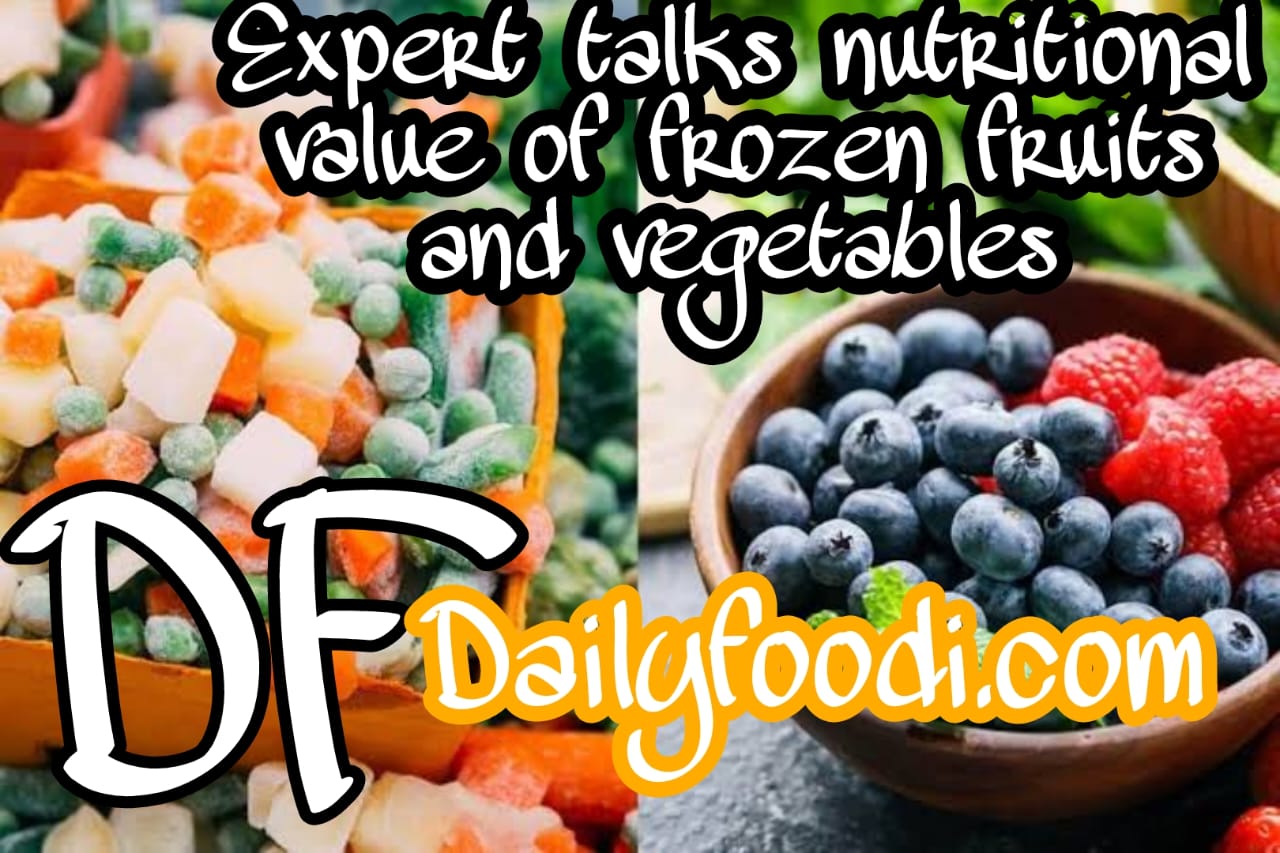Many people continue to be skeptical about frozen fruits and vegetables thinking they don't have the nutritional value of fresh produce. People tend to buy frozen fruits and vegetable instead of fresh vegetables. This is mainly because fruits and vegetables are easier to control for the time being instead of some other types of fresh vegetables and fruits. They are also easy to freeze and keep on hand. There's a very good reason to not give up your fresh produce, even if it gets low nutrition values.
If you're looking to buy frozen fruit and vegetables, there are some things that you should consider as well. In order to see how much frozen produce has to offer you, check out this guide for beginners on how to make use of these foods. The advantages to buying frozen fruits and vegetables are a lot to enjoy including, but let's talk about some things you need to know when choosing frozen foods so you can reap the full benefits as quickly as possible.
How To Tell If It Is True That You Have Enough Freezer Space For Fresh Fruits?
If you are buying frozen fruits and vegetables, you might notice that they contain less water. When you are buying fresh produce, you will find that something in the produce is mostly water or gas. A freezer doesn't provide space for any natural humidity. Some frozen vegetables may include small amounts of moisture.
Sometimes, frozen vegetables are too dry. However, it's important to pay attention to what you choose when looking to buy produce. What fresh is a veggie will tell you very soon if it's going to be as healthy as frozen products.
Frozen Peppers Are Not Really Healthy
Many people see more health benefits from eating peppers and many think they are actually healthier. But in reality, pepper peppers contain only 2.6% water. Even though they say it contains lots of water, it still makes it lose weight. So they are very thin. Therefore, they are not really healthy for you.
Peppers can cause gastrointestinal irritation. They can irritate your stomach lining and leave some behind on your clothes. In addition, there are many risks to you from consuming peppers like onions and garlic. Also, it can cause bloating and indigestion. Onions and garlic are said to be good for cholesterol and high blood pressure. You will have to check with your doctor first before consuming them.
Frozen Figs Are Just Like Baked Products!
Many people assume that frozen figs are just like baked apples or strawberries. These aren't any different and they are both great veggies. Their nutrients are nearly identical. Both types of figs are packed with vitamin C and potassium. With regards to minerals, they have the same amount of iron, calcium, phosphorus, magnesium, copper, zinc, and manganese. As well as fiber, they both contain vitamins K and B-Complex as well as vitamin E, which helps prevent tooth decay. One thing to note is that frozen figs are extremely crispy and therefore they don't last long if stored in the fridge. Another concern is that sometimes it’s hard to get the right size to fit into your bag. Therefore, you might have to throw away a few extra pieces and then put them back in the freezer to save space and money.
As Always, Look For Ingredients
When buying fresh produce, look at its ingredients and read the label. Make sure you know what is inside the product, the variety, the season, or even its country of origin. You will need to read ingredient labels for everything you buy. You will need to find the most essential components to a particular type of produce.
You will probably find some of the ingredients listed on frozen fruits and vegetables but only if you do your research properly.
Keep an eye out for the following:
Acidity - the amount of sugar and/or juices that come out of fruit juice are not listed on the bottom of the container
- the amount of sugar and/or juices that come out of fruit juice are not listed on the bottom of the container Antioxidants - they give skin cells protection against free radicals
- they give skin cells protection against free radicals Vitamin A - it gives Vitamin A to the liver which prevents fat damage
- it gives Vitamin A to the liver which prevents fat damage Vitamin C - it controls oxidative damage to muscles
- it controls oxidative damage to muscles Potassium - regulates blood pressure
- regulation of blood pressure Magnesium - reduces nerve pain
- reduces nerve pain Selenium - improves antioxidant absorption
- improves antioxidant absorption Copper - protects DNA strands
- protects DNA strands Iron - lowers stress
- lowers stress Copper Magnesium - stimulates immunity
- stimulates immunity Zinc - binds proteins
- binds proteins Chromium - minimizes cell damage
- minimize cell damage Manganese - regulates neurotransmission
- regulates neurotransmission Vitamin E - supports immune function
You can find more information here.








No comments:
Post a Comment